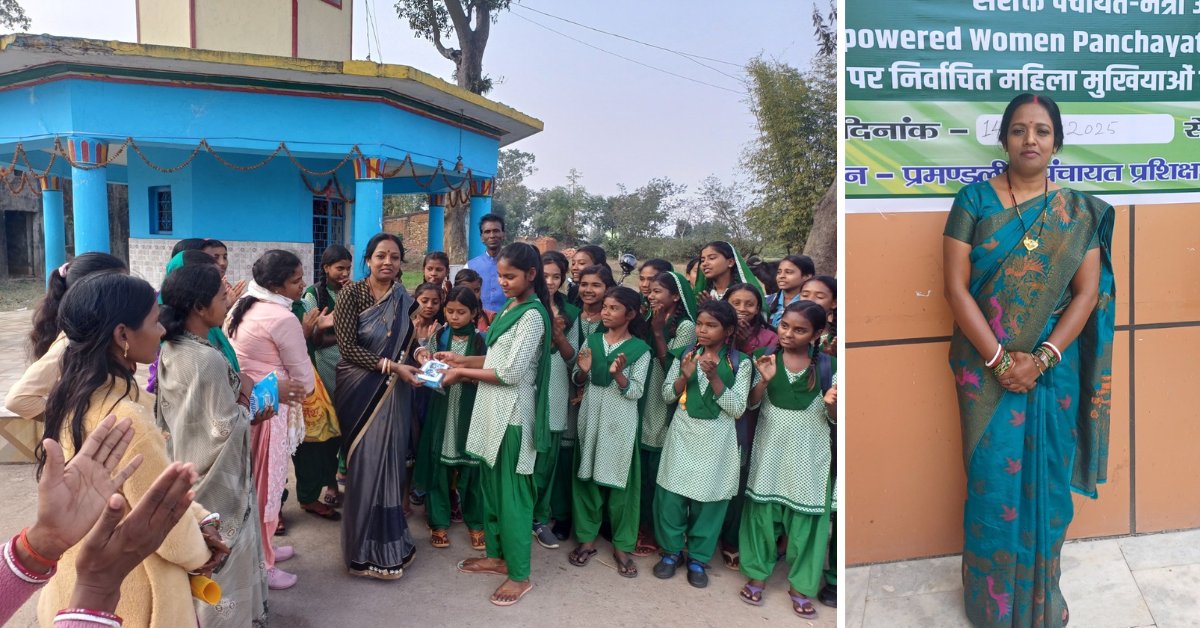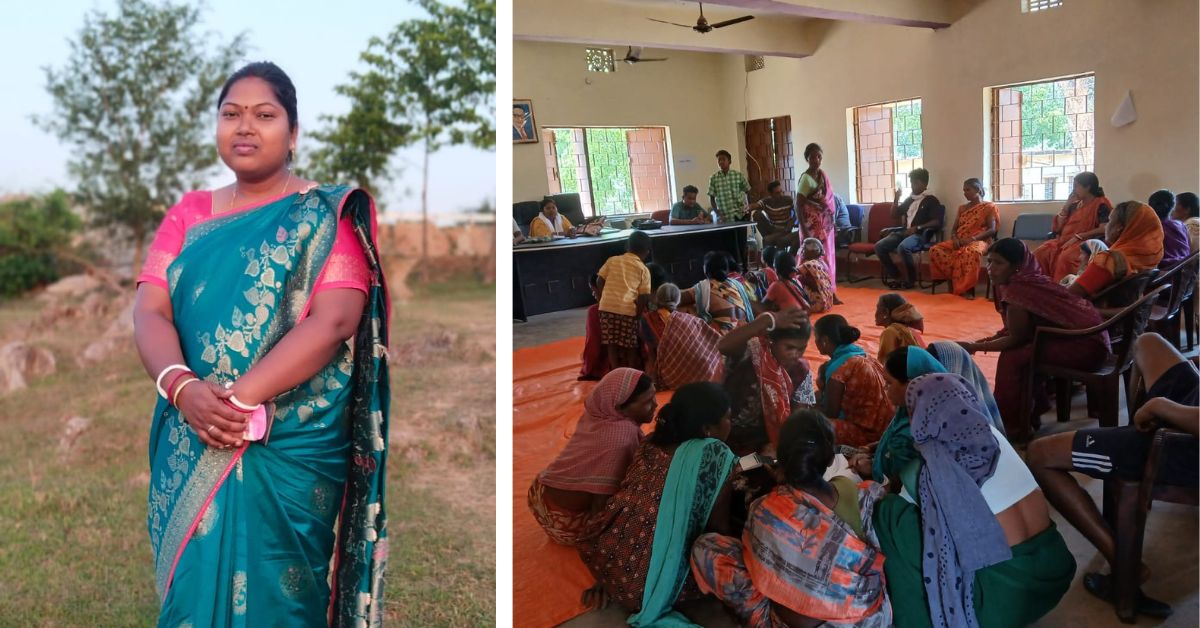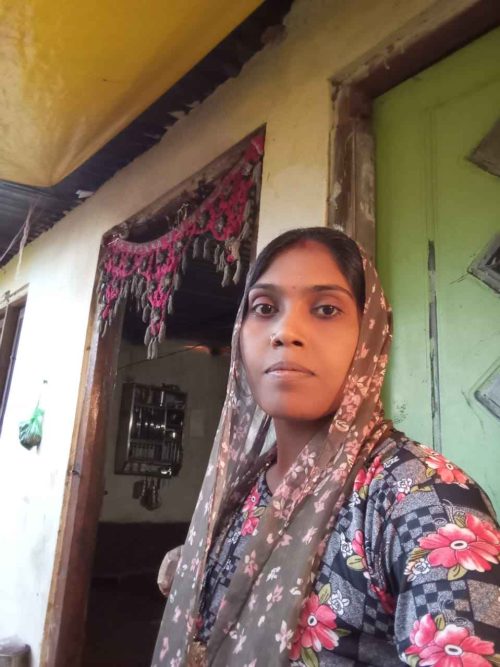One Rescued a Child Bride; Another Fought Caste Bias; All 3 Women Sarpanches Changed Villages
India has made some progress in women’s representation in governance. Currently, there are 74 women in total in the Lok Sabha and 39 in the Rajya Sabha. Meanwhile, in Indian villages, tradition often sidelines women from leadership.
When this has been the scenario for years, three powerful voices are rewriting the rules and future of other women. The Better India meets Prabala Kerketta, Alka Mahto from Jharkhand, and Sunita Bhalavi from Madhya Pradesh — three sarpanches who are leading their communities with courage, compassion, and clarity.
All three have become changemakers after pursuing noble professions such as nursing and teaching. Today, they show us what inclusive governance looks like when led by women. Here’s a glimpse into their lives, their motivations, and everything about their inspiring work.
Excerpts from the interview.
Q: Tell us a little about your journey — what inspired you to become a Sarpanch?
A: Each of these women stepped into leadership from a different doorway, but with the same motivation — to serve. Prabala Kerketta, Sarpanch at Dighia Panchayat, was a nurse in Jharkhand who would walk 16 kilometres daily to attend college. Even while on maternity leave, she found herself helping neighbours during COVID-19. “People trusted me and I wanted to do more,” she says.
For Sunita Bhalavi, Sarpanch of Barcha Buzurg in Dewas, Madhya Pradesh, it was the everyday connection with villagers that sparked her path. “I would go door-to-door helping people link Aadhaar cards. That hands-on work made me realise how much change was possible,” she recalls while in conversation with The Better India. Despite marrying at 19 and pausing her education, she never paused her ambition to uplift others.
 Alka Mahto, a teacher with a master’s degree in English, found her calling in silence. The silence of rural women, who were denied a voice, became the reason for her to step up.
Alka Mahto, a teacher with a master’s degree in English, found her calling in silence. The silence of rural women, who were denied a voice, became the reason for her to step up.
Alka Mahto, a teacher with a master’s degree in English, found her calling in silence. The silence of rural women, who were denied a voice, became the reason for her to step up. “I didn’t think I’d enter politics. But the struggles of women around me — no education, poor health — demanded someone to speak up. I chose to be that voice,” the Mukhiya of Purabdih Panchayat in Gola Block, Ramgarh says.
Q: What kind of leader do you aspire to be, and what challenges have you faced as women sarpanches?
A: All three women agree: leadership isn’t about titles, it’s about trust.
Alka believes in “badlav samvaad se”— change through dialogue. She focuses on teamwork and listening. Prabala echoes that sentiment, defining her leadership as ‘service before position’. Even before elections, she had helped over 160 widows get pensions and provided medical assistance to families.
Sunita is clear about her role: “I want every woman in my village to earn, to be independent, to be heard.” But their journeys aren’t without resistance. This comes in the form of proxy leadership, that is, when male-dominated decision-making is a shared challenge. Sunita fiercely opposes it. “I make sure I take charge fully — not as someone’s wife or daughter-in-law, but as a leader.”
Budget limitations, gender bias, and constant scrutiny also test their resolve. But as Prabala puts it, “Every day I work to earn trust, not just votes.”
Q: How do you view inclusive governance and the importance of women’s representation?
A: The answers are unanimous: Without women, governance is incomplete.
“Women must be in decision-making roles,” opines Prabala. “It’s not just representation, it’s justice.” Sunita highlights the irony: “We make decisions at home every day. Why should we stay silent in village meetings?”
 Prabala Kerketta, Sarpanch at Dighia Panchayat, was a nurse in Jharkhand who would walk 16 kilometres daily to attend college.
Prabala Kerketta, Sarpanch at Dighia Panchayat, was a nurse in Jharkhand who would walk 16 kilometres daily to attend college.
Alka sees inclusion as transformation. “When women participate, development looks different — it’s more holistic. It reaches homes, health, and education.”
Their villages now host Mahila Sabhas (women’s councils) and encourage dialogue in public forums, slowly shifting power structures in favour of equality.
Q: Can you share a story where your leadership made a real difference?
A: Alka, Sunita and Prabala have witnessed transformation — not through grand gestures, but courageous choices.
Prabala shares with The Better India that she rescued a child bride. “We visited the groom’s house and brought the girl back. She returned only when she was of legal age and gave full consent.”
Sunita shares how she dismantled caste discrimination in Barcha Buzurg. “Now, everyone lives together. Help is not denied based on caste.”
For Alka, it was menstrual dignity that became her mission. Through awareness drives, school posters, and partnerships with non-governmental organisations, she led a campaign on menstrual hygiene. “We even organised anaemia camps for adolescent girls. That changed how women saw themselves.”
Q: What areas need urgent attention in your state?
A: Infrastructure, education, water, healthcare, employment… the list is long.
Sunita emphasises water as the top concern in Madhya Pradesh. “Marginal farmers and livestock owners depend on it for survival.”
 Sunita speaks of her husband’s quiet support. “He pushed me to contest elections. Managed the home while I led the village.”
Sunita speaks of her husband’s quiet support. “He pushed me to contest elections. Managed the home while I led the village.”
Alka outlines five pillars: skill development for women, youth-led employment, stronger government scheme delivery, school reforms, and farmer support.
Prabala adds, “Healthcare systems need doctors and nurses. Roads and water access still lag. Environmental efforts — like tree plantations and water conservation — are also vital.”
Q: Has there been a personal moment that changed the way you lead?
A: For Prabala, it was her mother’s illness. “Watching her suffer made me want to serve others. Her strength became mine.”
Sunita speaks of her husband’s quiet support. “He pushed me to contest elections. Managed the home while I led the village. That belief made me stronger.”
Alka remembers Rekha Devi — a shy woman who wouldn’t step out of her home. “Today, Rekha runs a fishery and trains others. She attends every meeting. Her transformation changed how I see impact.”
From healing people as a nurse to healing her community as a sarpanch, 32-year-old Prabala Kerketta’s journey is not just about breaking barriers, but building bridges of trust, care, and change. Meanwhile, with quiet determination and an unwavering sense of purpose, Sunita Bhalavi is redefining what leadership can look like in Madhya Pradesh. From advocating for women’s rights to breaking caste barriers, she is nurturing a future where every woman and every villager has a voice. And Alka has silently noticed the struggles of women and has been working towards being their voice.
Sources
‘Women in Parliament‘: by Nitheesh Kumaar M V for Vikaspedia, Published on 26 July, 2024
News